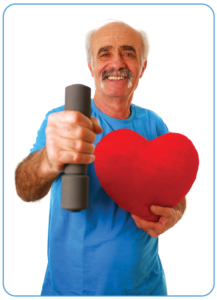Winter and bitter cold temperatures pose danger for those with heart disease and especially for older adults. Understanding your personal heart attack risk is vitally important during winter months. It is also important to be aware of the threats cold weather can bring and take appropriate precautions to ensure your safety.
Safety Tips for Cold Weather:
- Avoid alcohol as it gives you a false sense of warmth and can cause your heart to work harder.
- Don’t overdo it, start your morning off slow. The cardiovascular system can adapt to slow, progressive change. Avoid sudden exertion like shoveling snow and take frequent breaks.
- Prevent hypothermia by wearing a hat and layers of clothing to protect you from
cold temperatures. Older adults have lower subcutaneous fat and are more prone to suffer from hypothermia. - Remain hydrated and drink water regularly to prevent overexertion and dehydration.
- Breathe through your nose in cold weather; your nose has various defense mechanisms to prevent impurities and excessively cold air entering your body.

If you would like to learn more about a heart-healthy lifestyle, visit our therapy department. Physical and Occupational therapists can help you to develop a healthier lifestyle and reduce many of the risk factors that cause cardiac conditions. Cardiac rehabilitation programs are designed to help you control your symptoms and resume an active and productive life within the limits of your condition.
References: American Heart Association

 Heart Healthy Eating Did you know foods you eat each day can have a big impact on the health of your heart? Limit foods high in sugar and fat. Instead eat more vegetables, nuts, fish, and chicken. Nutritionists recommend 7-9 servings of fruits and vegetables a day to help prevent disease.
Heart Healthy Eating Did you know foods you eat each day can have a big impact on the health of your heart? Limit foods high in sugar and fat. Instead eat more vegetables, nuts, fish, and chicken. Nutritionists recommend 7-9 servings of fruits and vegetables a day to help prevent disease.